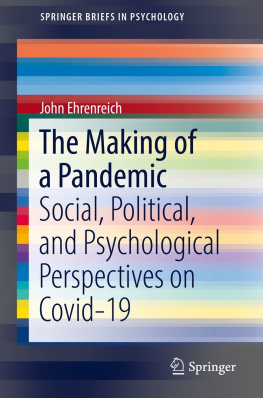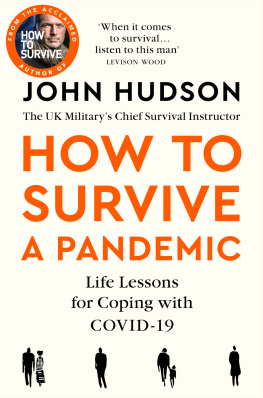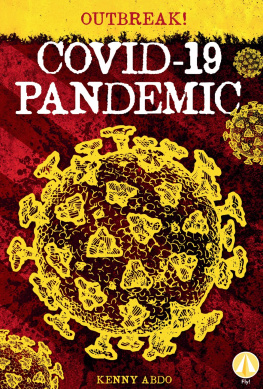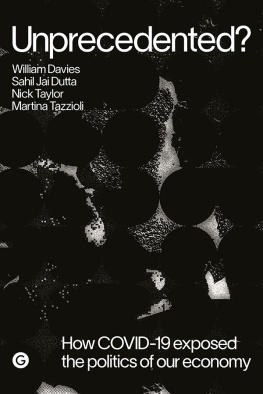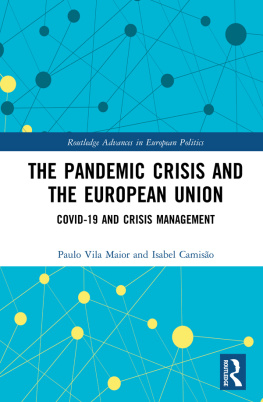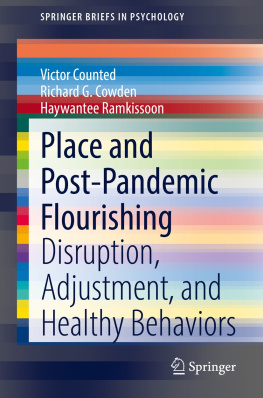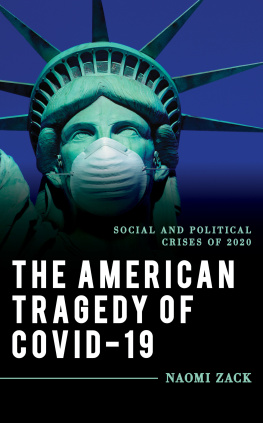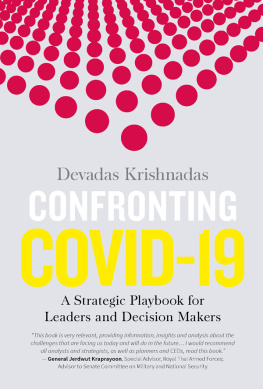John Ehrenreich - The Making of a Pandemic: Social, Political, and Psychological Perspectives on Covid-19
Here you can read online John Ehrenreich - The Making of a Pandemic: Social, Political, and Psychological Perspectives on Covid-19 full text of the book (entire story) in english for free. Download pdf and epub, get meaning, cover and reviews about this ebook. year: 2022, publisher: Springer, genre: Science. Description of the work, (preface) as well as reviews are available. Best literature library LitArk.com created for fans of good reading and offers a wide selection of genres:
Romance novel
Science fiction
Adventure
Detective
Science
History
Home and family
Prose
Art
Politics
Computer
Non-fiction
Religion
Business
Children
Humor
Choose a favorite category and find really read worthwhile books. Enjoy immersion in the world of imagination, feel the emotions of the characters or learn something new for yourself, make an fascinating discovery.
- Book:The Making of a Pandemic: Social, Political, and Psychological Perspectives on Covid-19
- Author:
- Publisher:Springer
- Genre:
- Year:2022
- Rating:5 / 5
- Favourites:Add to favourites
- Your mark:
- 100
- 1
- 2
- 3
- 4
- 5
The Making of a Pandemic: Social, Political, and Psychological Perspectives on Covid-19: summary, description and annotation
We offer to read an annotation, description, summary or preface (depends on what the author of the book "The Making of a Pandemic: Social, Political, and Psychological Perspectives on Covid-19" wrote himself). If you haven't found the necessary information about the book — write in the comments, we will try to find it.
John Ehrenreich: author's other books
Who wrote The Making of a Pandemic: Social, Political, and Psychological Perspectives on Covid-19? Find out the surname, the name of the author of the book and a list of all author's works by series.
The Making of a Pandemic: Social, Political, and Psychological Perspectives on Covid-19 — read online for free the complete book (whole text) full work
Below is the text of the book, divided by pages. System saving the place of the last page read, allows you to conveniently read the book "The Making of a Pandemic: Social, Political, and Psychological Perspectives on Covid-19" online for free, without having to search again every time where you left off. Put a bookmark, and you can go to the page where you finished reading at any time.
Font size:
Interval:
Bookmark:
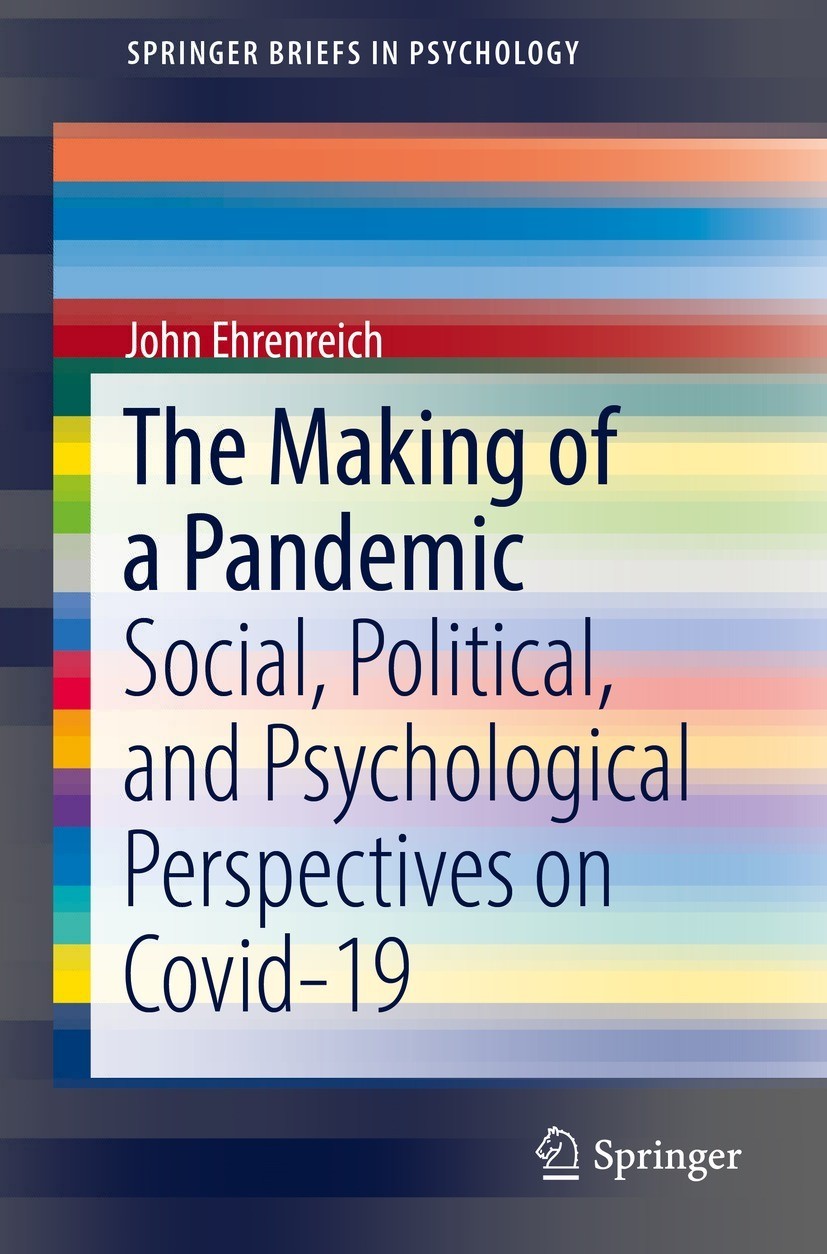
SpringerBriefs present concise summaries of cutting-edge research and practical applications across a wide spectrum of fields. Featuring compact volumes of 50 to 125 pages, the series covers a range of content from professional to academic. Typical topics might include:
A timely report of state-of-the-art analytical techniques
A bridge between new research results as published in journal articles and a contextual literature review
A snapshot of a hot or emerging topic
An in-depth case study or clinical example
A presentation of core concepts that readers must understand to make independent contributions
SpringerBriefs in Psychology showcase emerging theory, empirical research, and practical application in a wide variety of topics in psychology and related fields. Briefs are characterized by fast, global electronic dissemination, standard publishing contracts, standardized manuscript preparation and formatting guidelines, and expedited production schedules.
More information about this series at https://link.springer.com/bookseries/10143

This Springer imprint is published by the registered company Springer Nature Switzerland AG
The registered company address is: Gewerbestrasse 11, 6330 Cham, Switzerland
For Sharon, pandemic bubble mate, inspirer, collaborator, editor, and true love.
And for Rosa, Ben, Alex, Anna, Clara, and Nina.
In March 2020, as the country shut down, for the sake of my own mental health I began thinking about the pandemic itself, as opposed to the pandemics immediate impact on me, my family, and my community.
As those familiar with his work will recognize, my thinking was strongly influenced by the late, great microbiologist, disease ecologist, and environmentalist Ren Dubos. The 1960s1970s revival of social medicine and of concern with the social determinants of health, the negative impact of the medical-industrial complex on health, and the social control functions of medicine also provided a framework. More recent writing on pandemics, especially by Mike Davis, David Quammen, and Rob Wallace, also contributed greatly to my own understanding.
The immediate ancestors of this book were three articles published in Public Seminar in 2020 and 2021. One addressed the debate over whether Covid-19 was the result of a lab leak; one explored the psychology of the mass delusions and conspiracy theories about the pandemic that were already beginning to surface; and one asked what lessons we could learn from our early experience with the pandemic. I am deeply indebted to Henry Abraham, Rosa Brooks, Barbara Ehrenreich, Ben Ehrenreich, Duncan Foley, Bob Lobis, Sharon McQuaide, the late Ken Porter, and David Socholitzky for their comments on drafts. Claire Potter and Helaine Olen, my editors at Public Seminar, also commented on the initial drafts, and the comments of Public Seminar readers added additional valuable insights.
Over the months that followed, like so many others I had virtually no face-to-face contact with people, but I did have weekly or biweekly Zoom groups with several sets of old friends. Our virtual meetings provided a rich source of personal support and practical ideas on how to cope with the pandemic as it evolved. They also were a source of numerous insights about the Covid-19 pandemic, popular responses to it, and pandemics in general. In addition to those listed above, my thanks to Dan Alkon, Jack Auspitz, Bill Berg, Alfred Guzzetti, Frank Hoeber, Wayne Saslow, Lincoln Taiz, the late Todd Gitlin, and Jon Weiner. I also polled a group of Facebook friends about what about the pandemic had surprised them. Laura Anker, Steve Cagan, Tom DelGiudice, Kevin Grunwald, and Hedva Lewittes responded in especially great depth, and I am grateful to all of them.
Rosa Brooks, Ben Ehrenreich, Duncan Foley, Alfred Guzzetti, Sharon McQuaide, and Lincoln Taiz all read the first draft of the entire book. I was wowed and honored by the close attention they gave to it. They called my attention to incomprehensible or awkward passages, corrected typos, contributed substantive ideas, and provided profound thoughts both about pandemics and about the process of writing a book. I am deeply grateful.
Writing a book took my mind off the actual pandemic (even as I was writing about it!), but, as anyone who has written a book knows, it can be highly stressful. The patience and support and love from my family Rosa, Ben, Alex, Anna, Clara, and Baby Nu, and especially Sharon made it a largely joyful experience. My love and thanks to all of you.
has doctorates in biology and psychology. He is professor emeritus at SUNY-Old Westbury, where he taught for many years. He has written widely on issues at the intersection of biology, psychology, sociology, and social policy. His previous books include The American Health Empire: Power, Profits, and Politics (with Barbara Ehrenreich and the staff of Health-PAC), The Cultural Crisis of Modern Medicine (edited), The Altruistic Imagination: A History of Social Work and Social Policy in the United States, and Third Wave Capitalism: How Money, Power, and the Pursuit of Self Interest Have Imperiled the American Dream.
Font size:
Interval:
Bookmark:
Similar books «The Making of a Pandemic: Social, Political, and Psychological Perspectives on Covid-19»
Look at similar books to The Making of a Pandemic: Social, Political, and Psychological Perspectives on Covid-19. We have selected literature similar in name and meaning in the hope of providing readers with more options to find new, interesting, not yet read works.
Discussion, reviews of the book The Making of a Pandemic: Social, Political, and Psychological Perspectives on Covid-19 and just readers' own opinions. Leave your comments, write what you think about the work, its meaning or the main characters. Specify what exactly you liked and what you didn't like, and why you think so.

